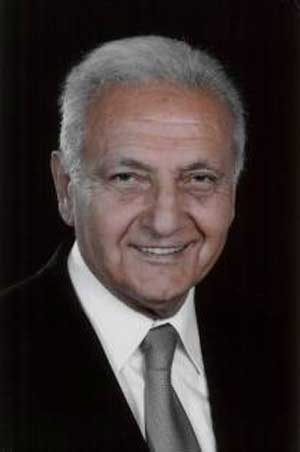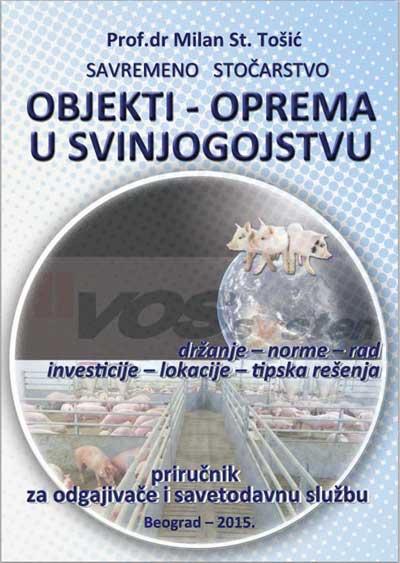Professor Milan Tosic: Over 50 years promoting international farming progress
By Erminia Ciarleglio
Born a farmer’s son at Stari Lec, Yugoslavia in 1934, Milan Tosic remembers a childhood when ethnic differences were happily accepted. In Banat, his home village, he grew up amongst three different folk groups – Swabian German, Hungarian and Serbian. He learnt the neighbours’ languages, fostering tolerance and learning linguistic skills that served him well in a career of international communication. The locals were either Roman Catholic or Greek Orthodox. “The religions mixed as if they were one,” he recalls. “Everyone joined in each other’s celebrations: We had two Christmases and two Easters every year!”
Farming being his lifelong fascination, he studied in Sarajevo and Belgrade, continuing the internationalism of his upbringing by forming his first connections with western Europe with a practical semester on a large estate in Germany. Again in Germany, one of his first posts as scientific assistant was at the Martin Luther University in Halle, Germany. His speciality: Mechanisation in sugar beet production. In 1967 Milan Tosic gained his master’s degree in agricultural engineering in Belgrade, continuing his studies for a doctorate at the University of Bonn. His thesis: “The mechanisation of sugar beet growing in Eastern Europe”.
Within just a few years Dr Tosic was appointed professor of agricultural engineering at Belgrade University, encouraging more efficiency in Balkan farming through greater mechanisation. Right from the start, close cooperation between his faculty and the leading German agricultural engineering research institutes in Bonn, Weihenstephan and Grub was established. The resulting knowledge transfer encouraged the closest relationship between production, processing and marketing in his homeland’s agriculture. His considerable contribution being later recognised with a top German academic award: The Carl-Heinrich-Dencker badge of honour for personal service to international knowledge and technology transfer between research, education, industry and commercial farming.
Professor Tosic, through your entire career you developed very close relationships with agricultural research institutes in Germany. How did this symbiosis come about?
Many of the relationships started through the DLG. For instance, I met Graf Franz Strassoldo and Dr Karl Kuendiger during a DLG bus tour I led through Slovenia, Croatia and Serbia, afterwards further DLG contacts such as Dr Hans-Hasso Bertram and the well-known Martin Lüth. Personalities such as those cemented long-lasting international relationships, a process continued with many trips between institutes in the east and west. Top farm businesses in Germany played an important role for expert visitors, the farms being recognised as important »demonstration farms« where much could be learnt. As for institutes, crucial contacts for me and the visitors I brought to Germany included doyens of agricultural science such as professor Hans Schön from the Bavarian State Research Center for Agriculture at Grub, and professor Edmund Isensee, University of Kiel.
What role has the DLG played in grass roots machinery development in Serbia and surrounding countries?
Right from the start of my career, the DLG provided a valuable source of knowledge in this respect. I’ve been a member of the society since 1977 and organising and accompanying visits to the major DLG exhibitions as well as specialist field events represented regular learning highlights for visiting scientists from many institutes, agricultural advisors and large-scale farmers. Such occasions made the DLG extremely well-known in the east, especially Serbia, making the organisation a synonym for continual progress in modern agriculture and its technology.
Sugar beet mechanisation is one of your major interests. Has your home country mirrored West European progress in this respect?
The comprehensive DLG agricultural machinery tests showed us the right machinery to import into the Balkans for efficient growing and harvesting of beet. This goes for other farm machines too, such as seed drills or combine harvesters. Close relationships have also been forged with German producers of world-renowned tractors and agricultural machinery in Balkan countries, where there was no great tradition of such production. And, of course, we cannot forget the role of DLG publications in dissemination of know-how, data and news: magazines such as DLG-Mitteilungen and agrifuture, Maschinenring and Milchpraxis as well as a range of technical publications.
What are present farming conditions in Serbia like?
Unfortunately, the farming economy in my home country has fallen on hard times – and the state of climate and soil is even worse. Compared with 20 to 30 years ago there are much lower numbers of livestock now. This has negatively impacted soil quality and reduced job opportunities on the land. There’s hardly any related processing industry. This means that instead of exporting, the state is forced to import more food to meet domestic demand. Serbia is an agricultural land, but nothing is being done to exploit the possibilities through government policies. There is now official recognition that poor farming methods have damaged soil quality, and that the infrastructure features too many small farms and poor agricultural education opportunities. Government now recognises that action is needed: but we’re talking about at least 20 years before the right actions start bearing fruit.
Your long and active career has officially ended, Prof Tosic. But we have the impression you are as busy as ever!
I’m happy to say my factual competence is still very much in demand. For instance, I’m still in the public eye through contributions in daily newspapers as well as in the specialist media. I have never ceased to enjoy my work in this respect, not least because it keeps me feeling young. As the saying goes: »Old age only begins when one stops being interested«.





